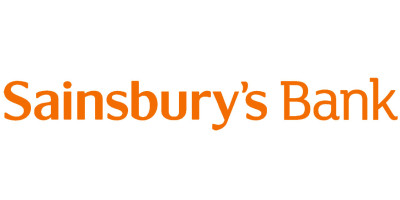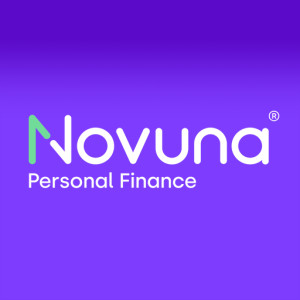Low-Interest Loans
Low-interest loans offers

LightStream provides an attractive option for personal loans, especially if you have a strong credit history. With competitive interest rates and a lack of fees, it's a borrower-friendly choice.
Pros and cons

SoFi's personal loans stand out as a top-tier lending option, boasting the qualities of a five-star lender. They offer a wide range of loan amounts, flexible repayment terms, and a host of special features that set them apart.
Pros and cons

Upstart is an online lending platform that facilitates personal loans by connecting borrowers with banks and credit unions. While it offers fast approval and funding times, it comes with some limitations.
Pros and cons

Discover stands out for several reasons. First, it offers unsecured personal loans, which means borrowers don't have to provide collateral like a car or savings account.
Pros and cons

Universal Credit’s starting rates are high compared to other bad-credit lenders, so compare loan offers before you apply.
Pros and cons

Santander offers various loans for personal needs, cars, home improvements, consolidating debts, and special occasions.
Pros and cons

Sainsbury's Bank, a subsidiary of the esteemed UK supermarket, offers a diverse range of financial services, including loans, credit cards, insurance, and savings accounts, with a focus on customer convenience and competitive solutions.
Pros and cons

Novuna offers a range of loans including car, home, debt consolidation, and leisure, all with flexible terms and competitive rates.
Pros and cons

HSBC offers personal, premier, car, home improvement, and debt consolidation loans with competitive rates and exclusive premier benefits.
Pros and cons

M&S Bank presents a diverse range of loans that offer flexibility in both borrowing amounts and repayment periods, featuring representative APRs.
Pros and cons
Understanding Low-Interest Personal Loans
Finding the right deal in personal loans can be overwhelming. Still, saving money with low-interest personal loans trumps just about any other strategy in the long run. Use this guide to know precisely what these loans are and what they offer.
What Are Low-Interest Personal Loans?
Low-interest personal loans refer to loans that have low interest rates in comparison to the standard personal loans. These are majorly issued to the borrower by banks, credit unions, and online lenders to help the borrower save money on interest payments over the life of the loan.
Key Features of Low-Interest Personal Loans
- Low Interest Rates: These loans have the lowest interest rates, meaning you pay a smaller amount of interest over the life of the loan.
- Fixed or Variable Rates: There may either be loans that are taken on fixed interest rates or variable interest rates. The fixed interest rates would remain static over the loan period, and the variable ones can change.
- Flexible Repayment Terms: Most of these loans have flexible repayment terms that you can access, reflecting your positioning in finances.
By choosing a low-rate personal loan, you can significantly lower your debt burden, making it easier to manage the cut in total interest paid over the life of the loan and likely reduce monthly payments.
Benefits of Low-Interest Personal Loans
So, what's cool with personal loans with low interest rates? First, and most evidently, much money is saved in interest payments. Secondly, it enhances the flow of cash with reduced payments payable each month, which could help in assigning the funds for other more useful financial priorities. This kind of loan usually comes with better terms than ordinary loans, which have greater flexibility in options for repayment.
When picking a personal loan, it is very important to choose one with a low rate of interest so that the loan can be beneficial for financial planning
Types of Low-Interest Personal Loans
The world of attractive low-interest rates for loans is a maze with many choices offered to you. In this section, our team will fill you in on the plethora of different types of low-interest personal loans UK. We've broken down the major types for you, highlighting their unique features to help guide your choice.
Secured vs. Unsecured Loans
Secured loans require the borrower to offer a house or car as collateral, which lenders can seize if the borrower defaults. Secured loans offer low interest. This makes sense because there is less risk on the part of the lending company. Unsecured loans are precisely the opposite; they do not require anything of the type, which is why, generally, interest rates are higher to cover risk.
Our team prepared the following table regarding differences between secured and unsecured loans:
| Feature | Secured Loans | Unsecured Loans |
| Collateral | Required (e.g., house, car) | Not required |
| Interest Rates | Lower | Higher |
| Risk to Borrower | Loss of collateral if default occurs | No risk of losing assets |
| Approval Criteria | Stricter | More flexible |
Fixed vs Variable Interest Rates
With fixed-rate loans, the interest rate remains constant through the life of the loans, and thus, these payable amounts are kept in the expected range. On the other hand, variable-interest-rate loans rates vary up and down, which will then result in the varying of the monthly payment obligation. This is when borrowers need to consider their financial stability and their taste for risk.
For those seeking stability and predictability, a low-interest fixed-rate loan is an excellent option, offering consistent payments and reducing financial uncertainty. Variable rates might provide savings if market conditions are favorable.
Special Low-Interest Loans
Some lenders offer niche low-interest loans for debt consolidation, home renovation, or critical purchasing. In most cases, these loans are often associated with lower interest rates than standard personal loans.
- Low Interest Debt Consolidation Loans: When many different debts are brought together to make one payment at a reduced interest rate.
- Low Interest Home Improvement Loans: Attractive rates meant to work on renovations and upgrades.
- Major Purchase Loans: Lower interest rates on major purchases (for example, wedding loans with low interest or travel loans).
Getting the right loan is a big step toward protecting your financial health. A lot of decisions come into play during the process of selecting a secured or unsecured loan, choosing a fixed or variable interest rate, and finding the most attractive special options for loans in terms of advantages and possible risks. Our team is dedicated to ensuring you make informed decisions in getting the best low-interest loans available in the UK.
Key Features and Benefits of Personal Low-Interest Loans
These loans provide various features and benefits that appeal to borrowers. Our team has prepared this information to cover the most essential advantages of low-interest loans so you can be sure you know your decision.
Long-Term Financial Benefits
The long-term financial benefit is one of the most important features available with the loans with low interest. By servicing relatively petty interest, one can save quite a sum of money throughout the period of credit.
Small savings from a low-interest loan can accumulate over time, making a big difference in your financial health.
Flexible Repayment Options
These loans usually are designed so that any borrower will have an option of terms to choose for repayment that fits their financial situation. Be it a more extended repayment period with small monthly repayments or a shorter term with high payments, these loans provide the flexibility one needs to manage finances.
Repayment flexibility is key to finding a loan that fits your budget and financial plans.
Fast Approval and Funding
Many quick low interest loans offer fast approval and funding, which is very important, especially in emergencies or when one needs financial support urgently. Their convenient application processes and speedy dispatch of funds make them a prominent option for people who need access to money within the shortest time possible.
Quick access to funds can be a lifesaver in emergencies, ensuring you can cover unexpected expenses without delay.
How to Qualify for a Low-Interest Personal Loan
Acquiring a personal loan on low interest is crucial in managing your finances effectively. We have compiled this guideline so that you can be in your best state to qualify for the loans.
Assessing Your Financial Health
Before you apply for a low-interest loan, you should consider the factors that come to play, such as their credit score, debt-to-income ratio, or general financial standing. Also, the lower rate will be made available to those better placed financially.
The first step to getting a loan on reasonable terms that won't gouge your bank account is having an awareness of the state of your financial health.
Improving Your Credit Score
A good credit score increases the probability of getting low-interest loans. You should pay your bills on time, pay off outstanding debts, and avoid new credit inquiries to raise and maintain a high credit score. Getting used to handling credit on an ongoing basis will improve your eligibility for better loan rates.
Selecting the Right Lender
It is essential to engage the right lender while borrowing any such low-interest personal loan, in which some lenders offer varying terms and hence interest rates. Therefore, all options should be compared.
| Look for Lenders | Check out various lenders, such as banks, credit unions, and online lenders, to find the best rates and terms. |
| Read Reviews | Look for reviews and ratings about the lenders to get a hint of who is reliable and who provides good service. |
| Compare Offers | Tools for analysis enable one to evaluate the offers for loans side by side on such things as interest rates, associated charges, and repayment terms. |
Be careful that your selection of lender will make big differences in the terms and rates you will receive, so take your time researching and comparing options.
Applying for a Low-Interest Personal Loan
Several are the steps in your application for a loan with low interest, and this section will accompany you through preparing your documentation and application.
Preparing Your Documentation
When applying for a low-interest unsecured personal loan, you only require your documents in advance. These include income proof, employment identity verification, and any other required to furnish the financial information. This way, the application is more accessible, and it warrants you higher chances of approval in the quickest time.
We prepared this checklist to help you organize your documents:
- Income verification (pay stubs, tax returns),
- Employment verification (letter from employer),
- Identification (passport, driver's),
- Financial information: bank statements, information of any debt.
The Application Process Explained
The application for most low-interest-rate personal loans is usually made online or in person, with some having to be accompanied by certain documents prepared and submitted, followed by the approval process. Some lenders offer pre-qualification, allowing you to find out the rates and terms you could be approved for without affecting your credit score.
Being aware of an application process will allow smoothly and resourcefully navigating through it.
Managing Your Low-Interest Personal Loan
Managing a low-interest personal loan effectively ensures you reap the full benefit of your available loan. This section discusses general tips about making on-time payments, investigating methods of early repaying some of the loans, and addressing any financial difficulty.
Making On-Time Payments
Just be sure you are always committed to repaying your advances on time with loans and credit. Failure may bring about increased interest rates, fines, and even damage to your credit score. This can be achieved by either automatic payments or reminder payments so as not to miss a due date.
Early Repayment Options
Some low-interest loans may provide a prepayment option with no charges. It helps to save an amount of interest paid and shortens the term of the loan. However, before you settle for a prepayment option, review your loan agreement, in which some fees or imposed conditions can exist.
Prepayment is nice—it saves money and gets you to a debt-free condition much quicker.
Addressing Financial Challenges
Always communicate with your lender if you experience any form of financial hardship while paying back your low-interest personal loan. Most institutions have hardship programs or plans that offer modified payment options to clients to help them make payments through rocky times.
Taking a personal loan with a low interest rate benefits in many ways; the range is from savings on the cost to very flexible repayment options. Pick any loan that fits your needs and your financial goals by knowing the available different types of loans, checking your financial health, and matching the right lender. Responsible loan management will guarantee long-term economic stability and peace of mind.
For more comprehensive information, you may refer to sources such as the Research and Markets Global Market Report 2024.
Pros and cons
Pros
- Lower Interest Payments: Saves money over the life of the loan
- Flexible Repayment Options: Tailored to fit your financial situation
- Fixed or Variable Rates: Choice between stable or potentially lower rates
- Reduced Monthly Payments: Frees up cash for other financial priorities
Cons
- Stricter Approval Criteria: Often requires good credit scores
- Possible Fees: Prepayment penalties or other fees may apply
- Credit Impact: Missed payments can damage credit scores
Frequently Asked Questions About Low-Interest Personal Loans
What is a low-interest personal loan?
This loan is one where the interest rate is considerably lower than other ordinary loans.
How can I qualify for a low-interest personal loan?
A good credit history, the ability to demonstrate repayment of installments over a period, a low debt-to-income ratio, regular income—a whole lot of other things—would secure the personal loan at the best interest rate possible.
What are the benefits of low-interest personal loans?
Some of the benefits to consumers for loans with low interest are: lower monthly payments, paying less over the entire period, and probable savings over the life of the loan.
What is the difference between fixed and variable interest rates?
Fixed interest rates are unchanged for the entire loan period, while variable ones can change due to the prevailing market condition.
Can I get a low-interest personal loan with bad credit?
While it’s challenging, some lenders offer low-interest personal loans for bad credit, though the interest rates are slightly higher than those for good credit borrowers.
How much can I borrow with a low-interest personal loan?
Of course, how much you can borrow with a low-interest personal loan is subject to the lender's terms and your creditworthiness, but it generally would be in the few thousand to tens of thousands of pounds.
What documents are required to apply for a low-interest personal loan?
To apply for a personal loan with low interest, a person will need identification, proof of income, details concerning their employment, and financial situation.
How do I improve my chances of getting a low-interest personal loan?
Improve your chances by enhancing your creditworthiness, reducing existing debt, and ensuring stable employment and income records.
How do I compare low-interest personal loan offers?
Compare low-interest personal loan offers considering APR, loan terms, and any flexibility in paying back with fees.
Are there any fees associated with low-interest personal loans?
Yes, origination fees could be taken, as well as late payment fees and prepayment penalties, with these loans.
Can I refinance my existing personal loan to get a lower interest rate?
Yes, you can refinance your existing personal loan at a lower interest rate available if you're eligible for better terms—that can be saving.
How long does it take to get approved for a low-interest personal loan?
These loans take varying times to be approved, with most of them taking from a few hours to several days, depending on the lender's process.
What happens if I miss a payment on my low-interest personal loan?
Missing a payment on your loan with low interest may bring about late fees, credit damage, and the risk of default.
Are there specific lenders that specialize in low-interest personal loans?
Yes, some lenders specialize in having low-interest personal loans, including certain banks, credit unions, and those lending online.
How can I use a low-interest personal loan?
You could consolidate high-interest debt into a loan with low interest, make large purchases, pay medical bills, or finance home improvement.